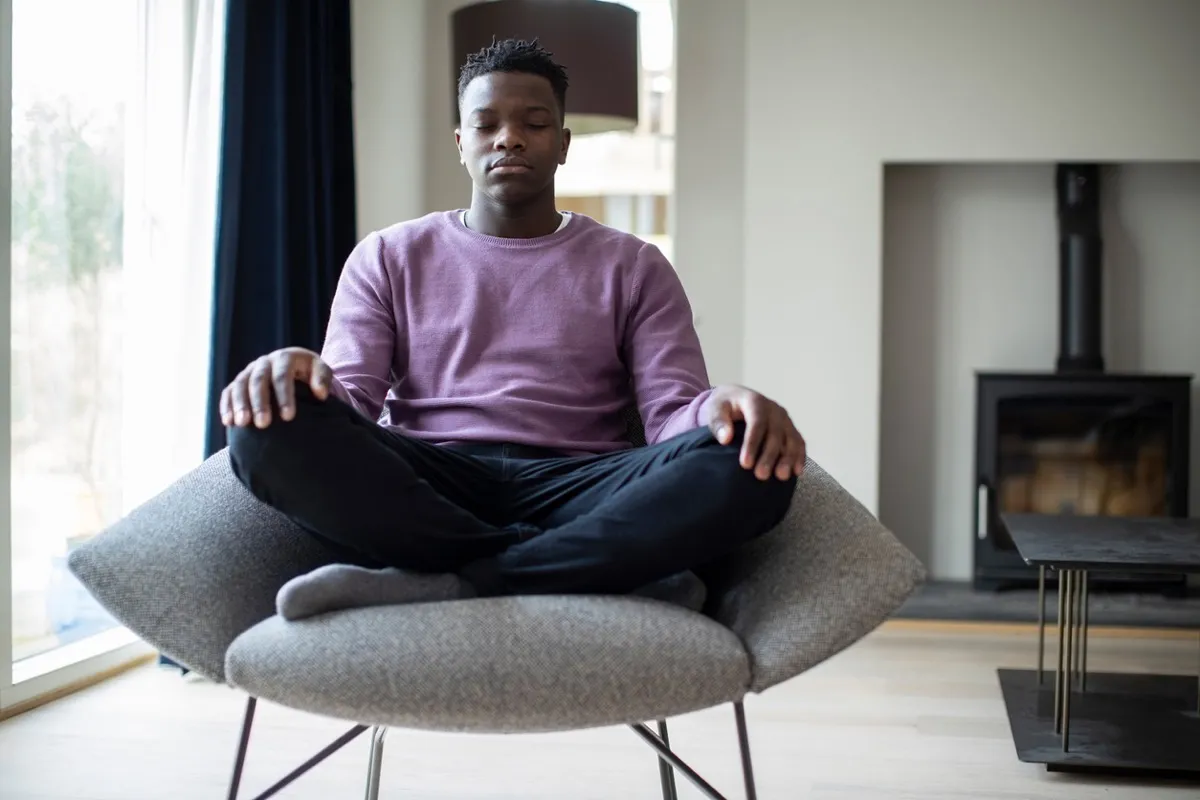It’s impossible to deny that recreational marijuana use has become mainstream in most parts of the US. Cannabis is by far the most popular drug in America, with 91 percent of adults supporting marijuana legalization, according to the Pew Research Center, and 55 million people reporting that they currently use marijuana, according to the National Center for Drug Abuse Statistics (NCDAS). However, while much of the messaging around the popular drug says it’s harmless, chronic marijuana use can cause a range of long-term health problems that you might not be aware of. Read on to discover four health benefits you’ll experience soon after ditching your habit.
READ THIS NEXT: Brad Pitt Credits This Huge Star With Helping Him Overcome Addiction.

Smoke of any kind is harmful to lung health—and marijuana smoke contains many of the same toxins, irritants, and carcinogens as tobacco smoke, according to the American Lung Association. So if you’ve been a long-time marijuana user, your lungs may be paying the price. “Smoking anything harms the lungs because of combustion byproducts,” explains Andrea Paul, MD, a medical advisor at Illuminate Labs. “People who quit… marijuana may [also] notice improved cardiovascular endurance and potentially improved VO2 max.”
Marijuana users tend to breathe in more deeply and hold the smoke in their lungs longer than people who use tobacco, which can cause lung problems over time. In addition, frequent marijuana use is associated with morning cough, excess phlegm, and bronchitis symptoms in young adults, according to research published in the European Respiratory Journal.
The good news is that your lungs can begin healing as soon as one to three days after quitting marijuana (and may continue to heal for several years). However, you may experience irreparable lung damage depending on how much and how long you’ve used marijuana.

Your brain will take a little longer to repair itself once you quit cannabis, although the process starts right away. After four weeks of abstaining, brain receptors that regulate neurological processes—such as pleasure, motivation, memory, learning, cognitive function, and fine motor control—begin returning to normal function.
A 2018 study published in The Journal of Clinical Psychiatry looked at the memory performance of 88 adolescents and young adults between the ages of 16 and 25 who used cannabis at least once a week. Participants took memory tests throughout the study duration and researchers found that after just one week, those who stopped using marijuana performed moderately better than they had at the beginning of the study. These findings indicate that marijuana’s adverse effects on the brain aren’t set in stone, and memory and cognition can be restored over time.
For more health news sent directly to your inbox, sign up for our daily newsletter.

Marijuana may help you fall asleep, but the quality of that sleep will suffer. Even after quitting marijuana, it’s common to experience persistent sleep problems. According to a Feb. 2022 study in Drug and Alcohol Review, 47 percent of participants reported sleep issues after ditching marijuana. Up to several days or weeks after quitting cannabis use, some people may experience insomnia, while others might have nightmares or more vivid dreams that disrupt their sleep—but these issues tend to subside 10 to 20 days after going cold turkey, according to the experts at American Addiction Centers.

If marijuana is causing you to feel anxious, panicky, or paranoid, you’re not alone. A 2013 study by the United Nations Office on Drugs and Crime (UNODC) found that approximately 50 percent of participants who received THC (the psychoactive ingredient in cannabis) reported having paranoid thoughts. That’s because the cannabinoids in THC can overstimulate the amygdala—the part of the brain that controls emotions such as anxiety, panic, paranoia, and fear.
Fortunately, you can get relief from these negative emotions as soon as a few days to two weeks after quitting cannabis. Just know that withdrawal symptoms—such as abdominal pain, irritability, sleep difficulty, and depression—can set in during this time. “The withdrawal symptoms from heavy marijuana use are mild compared to other drugs such as heroin, but can still be uncomfortable for the first few days or weeks after quitting,” says Paul. “This is why working with a doctor or addiction specialist to quit is so important; it can help a patient quit the right way and reduce the chance of relapse.”
READ THIS NEXT: Drinking Any of This Popular Beverage Hurts Your Heart, New Study Finds.

